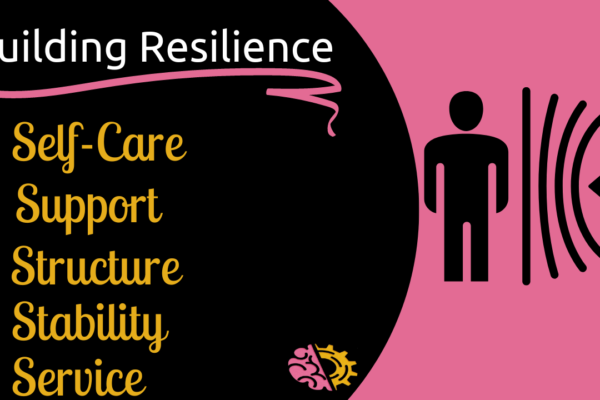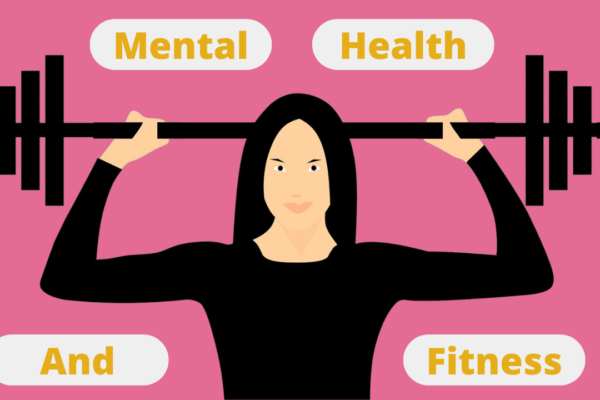Table of Contents
How To Cope With Depression In 12 Proven Steps: Step 12
Addressing your Obstacle To Interpersonal Effectiveness.
In the last post, we covered the following barriers to fostering healthy relationships:
-There are many obstacles to interpersonal effectiveness
-Communication is a common obstacle in creating healthy relationships
-What exactly “active listening” is, and what it is not.
-Types of communication
-How to use assertive communication effectively to meet your needs.
-Learn how to articulate and frame your thoughts and feelings using assertive communication.
-The importance of identifying areas for potential growth in your interpersonal skills.
Before reading on, be sure to review the skills discussed in my previous post, How To Cope With Depression In 12 Proven Steps: Step 11
In this post, I will cover the fourth and final set of skills in addressing depression in the context of relationships, and how to address obstacles to using your new skills.
In this post, you will learn methods for addressing obstacles to interpersonal effectiveness, using your new skills, in order to improve your people interactions and foster healthy relationships. This article emphasizes the power and importance of choice within relationships as a means to how we relate to those around us.
This post will cover:
-Fear as an obstacle to interpersonal effectiveness and healthy relationships
-Low self-esteem as an obstacle to interpersonal effectiveness and healthy relationships
-Understanding old behavior patterns and their rules as an obstacle to interpersonal effectiveness and healthy relationships
Fear as an obstacle to healthy relationships
Fear is a normal, prime emotion, which we all experience. It generally serves a good purpose in an effort to keep us safe by alerting us to perceived or direct threats.
In our social interactions, we may have an affinity toward particular apprehensions, which stem from fear, which are often one of three usual suspects below:
-Fears around social interactions are usually in anticipation of conflict.
-Having a social identity as “the mellow or steady one, mediator or problem solver”, and stepping outside that assigned role and creating conflict feels like a social violation of the norms within your support system.
-The fear of rejection. That stating your thoughts and feelings will result in immediate judgement from others or disapproval.
Assertive communication can feel dangerous.
-The thought of exposing your feelings to others can feel dangerous because then your feelings can be hurt if they are rejected.
-There can be fear of actual retaliation for speaking your mind, concerned it will result in emotional or physical abuse.
How to combat your fears of being assertive.
- Write out a specific scenario in which you could or have had trouble being assertive and communicating your thoughts and feelings.
- Then write out the anticipated negative outcomes if you acted assertively.
- Then write out possible positive outcomes for being assertive.
- Consider what would be your natural response.
- Then explore fearful thoughts that normally prevent you from speaking up.
- Lastly, consider what behaviors you could change to act more assertively.
- Everything is created twice, first in your mind’s eye, and then in your behavior. If you can envision what specific behavior change would look like, you will be better equipped to implement those changes in your routine interactions to address obstacle to interpersonal effectiveness.
Low self-esteem as an obstacle to interpersonal effectiveness
Do you believe it is within your natural rights to communicate assertively, to be direct about your thoughts, feelings and desires as it relates to others?
If you find yourself struggling with this, you are not alone.
It is important however, to understand why you feel unworthy to assert yourself, if that is the case.
Write down some of the reasons you do not feel you have the right to be assertive.
Know your rights: You have the right to…
–Alert others to your feelings as long as it is done with mutual respect.
-Communicate your thoughts and points of view, as long as it is done with mutual respect.
-Make requests for others to alter their behavior if it is having a direct negative impact on you.
-Own or disown the things that are said about and to you.
-Decide how and where you spend your time and energy, and if you will do what is asked of others.
-Feel and be safe!
Understanding old behavior patterns, and their rules, as an obstacle to interpersonal effectiveness
We all have rules that dictate our behavior within relationships. My rules may differ from you rules. Some rules are more helpful than others, and some are debilitating.
Like all rules, relationship rules stem from assumptions about how the world around us operates, and those assumptions stem from our core beliefs.
Core beliefs stem from early life experience.
We are not usually conscious that we are operating from this system. We behave in an automated sequence of behavior that has solidified over time into predictable patterns. At best, we are somewhat conscious of our rules and assumptions, which we often think of as our value system.
For the purpose of this article, we will focus on basic assumptions.
Example: Unhelpful assumptions
“My needs are met last.”
“I am a bad (father, son, brother, employee…) if I make mistakes.”
“No one can be trusted.”
“I have to manage everything or things will go wrong.”
“Everyone is out for themselves.”
“Others will always disappoint and reject you at some point.”
Example: Helpful assumptions
“Everyone has innate value and importance.”
“Everyone has the right to feel and be safe.”
“Malicious people should be avoided.”
“No one is right all of the time and no one is perfect all of the time.”
“We all have the capacity for good and bad behavior.”
“Most people are well-intended.”
“Mutual respect is always the best approach.”
What is the origin of relationship rules?
In psychology, there is a term called object relations. It is the idea that from birth, we all learn to make sense of the world around us by building a reference for comparisons. With every interaction, we are comparing and contrasting what we know from our present experience against our expectations, pulled from our frame of reference. We then begin to make assumptions from each new experience as our expectations match our comparison.
So, our assumptions create by necessity, a set of rules or guidance for our behavior, because of our past experience.
These lived experiences take place across our life domains as we grow. Examples of these domains are:
-home environment
-school environment
-religious environments
-how we are treated by others across theses environments
-what is expected from us within our environments.
An analogy
I love analogies, because it helps to paint a picture to better understand a concept.
Consider this.
Our environment is like a dance floor, or several dance floors. With each stage of our lives, we learn different dances. We learn one particular dance when we are small, and it is appropriate to our context.
However, if we fail to learn other forms of dance, then we will continue to dance what we know, regardless of context (music), which may not be as effective as is was in prior context.
In order to have better life experiences and people interactions, we may need to learn some new, more complicated moves, or a whole new dance altogether.
Like anything worth doing, learning new social skills can take time, but gets easier as you build on them.
Exercise: Write it out
-Consider what are your relationship assumptions and rules?
-It helps to think about your negotiables, and non-negotiables. Your value system. Where are your boundaries?
-Consider your life experiences. What experiences contributed the most to your current rules?
-How have these identified rules served to protect you?
-Do these rules encourage assertive communication?
Changing the rules
Remember, you are the author of your life. You are the one who created the relationship rules you have been operating by. This also means that you get to decide when and how they get altered. Here are some quick tips for making rule adjustments.
- Strive for balance. If your find that your rules are governed by black and white thinking/all or nothing thinking, than consider finding a compromise. For example, if your rule is to never smile at others because they cannot be trusted, than try greeting them and returning a smile when offered one. It may not be realistic or too uncomfortable to expect yourself to smile at everyone, or force introductions with everyone you meet. The key here is to be genuine, but challenge your negative assumptions. Think of the term, Cautiously Optimistic.
- Decide ahead of time what you want your new behavior to look like in your people interactions. It will make it easier to implement them if you can envision it. Try to envision how you want to feel, the type of thoughts that you want to have, and the behaviors and boundaries that lend to that. For example, if you’re previous rule was to say yes every time you are asked to commit to something, try to set into motion some new responses that protect your new rules and create healthy boundaries. The goal is to increase positive outcomes, qualified by how you feel about your decisions afterwards.
Key Points
– Relationship obstacles are normal and a part of life. You can learn methods for addressing obstacles to using your new skills by tackling the fear behind your apprehensions.
-You have the innate right to express your thoughts and feelings and to feel safe.
– You can decide to make changes in your rules and assumptions to improve your social interactions and feelings about the self.
Exercise
-As always, track your mood and correlating factors (using the Free Mood Tracking Tool I provide when you subscribe to this blog) or with whatever entails the least resistance for you.
-Schedule some time with a safe support.
-Decide ahead of time with whom you need to be more assertive to maintain healthy boundaries.
-A great place to practice you new skills is in a social environment, wherein you have a natural interest or affinity. One tool I often refer to in finding social outlets of common interest is Meetup.com.
There you have
it.
Another tool for you to Thrive!
It has been a pleasure serving you.
You did it!
-You have just finished reading the final step in a 12-part series on the fundamental coping skills for depression.
-In the event that you missed any of the prior steps, you can read them in consecutive order here on the BLOG page, or jump right to Step 1.
It is my mission to equip you with valuable and effective coping skills and clinical interventions, to improve your mood, be more productive and improve your quality of life, so you can do more, and worry less.
ASK: If you have a question you’d like me to answer here on the blog (even if you think it’s a silly one!), please use the form on the CONTACT ME page, or the comment section below. I would be happy to take a poke at it and provide a long form answer when appropriate.
SHARE: Also, be sure to share it with a friend, as there is still a lot of work to be done in raising mental health awareness.
SUBSCRIBE to get your FREE MOOD TRACKING TOOL and quick Mental Health Hacks in addition to this newsletter. Sign-up with the form below.
Recommended Reading
Heads up: This article/page does contain affiliate links to products sold on Amazon, which I recommend in the context of this discussion, because they have proved to be helpful to me and/or my clients. As an Amazon Associate I earn from qualifying purchases by way of commission at no additional cost to you.

NEED CRISIS HELP? If you need immediate crisis help with your depression, you can call the National Suicide Prevention Lifeline at 1-800-273-8255 or text “START” to 741-741
OUTSIDE THE UNITED STATES: See International Suicide Hotlines
WHERE TO FIND MENTAL HEALTH HELP:
-NAMI Referral Helpline: 1-800-950-6264
-California’s Statewide Mental Health Helpline: 1-855-845-7415
References:
Group Cognitive Behavioral Therapy for Depression:-Jeanne Miranda, Ph.D; Stephanie Woo, Ph.D.; Isabel Lagomasino, M.D., M.S.H.S.; Kimberly A. Hepner, Ph.D.; Shelley Wiseman, B.A.; and Ricardo Muñoz, Ph.D. Revised August 2006.
admin
Latest posts by admin (see all)
- Thriving with Autism and ADHD: Expert Strategies for Managing Burnout - April 22, 2024
- Serial Killer Spotlight: Dr. Caparelli’s True Crime Analysis - April 14, 2024
- Donna’s Law: Stop Gun Suicides - March 22, 2024









